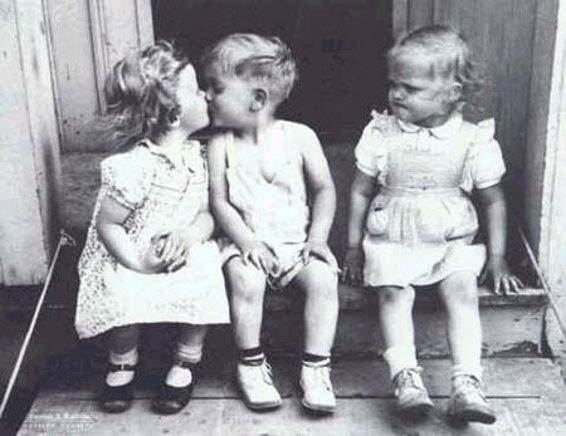We all fall into traps in life. One of the most common is the comparison trap: constantly comparing ourselves to others and judging our worth by how we stack up—mostly on things that are superficial and unimportant:
Where do I live?
What do I drive?
How much do I make?
Where do I fall in the social hierarchy?
According to researchers, this kind of comparative thinking is common:
“…the urge to make comparisons is strong. Our research has found that more than 10% of daily thoughts involved making a comparison of some kind.”
-Dr. Amy Summerville, “Is Comparison Really the Thief of Joy”
I suspect it’s only getting worse in the age of Instagram and TikTok.
As always, there’s some nuance here. This kind of thinking can motivate us to work harder to improve. We can draw energy from a sense of competition and striving.
The problem, though, is that this kind of thinking can significantly detract from our sense of wellbeing and life satisfaction.
The Thief of Joy
“Comparison is the thief of joy.”
-Theodore Roosevelt
“Social comparison is a big part of how people measure worldly success,
but the research is clear that it strips us of life satisfaction.”
-Arthur C. Brooks, social scientist and writer
One reason is that we tend to use unrealistic comparison points, such as the best person we know in an area, such as wealth or fitness. Naturally, then, we fall short in a side-by-side review.
Of course, we can’t be the best in everything. What’s more, our self-review can be brutal. And that means we’re sabotaging ourselves.
Another issue: the point of life is not to be the best (or the richest, or most famous, powerful, or beautiful), and certainly not to be the best at everything. Talk about unrealistic.
Also, we’re all living our own lives, with our own unique context, challenges, values, and aspirations. Life can be hard enough without us feeling like we have to beat someone at their game.
A better formula: You be you, and I’ll be me. I’ll play my own game. (And hopefully I’ll choose the long game.)
“…let’s just go ahead and be what we were made to be,
without enviously or pridefully comparing ourselves with each other, or trying to be something we aren’t.”
-Romans 12
If some comparing is inevitable (often generated involuntarily by our mischievous brains), one key may be our mindset: do we view our abilities as fixed (and thereby feel bad if someone is better than us at something), or as malleable if we work hard and smart, thereby motivating to learn, grow, and develop?
How to Be Happier
Fortunately, researchers have identified many ways we can train our brain to be happier:
- Exercise. We need to move our bodies, and when we do so we can build strength, endurance, and energy. It causes positive reactions in our bodies that affect our mood, and it helps us sleep well (also critical for physical and mental health).
- Gratitude. According to researchers, being grateful for what we have can have powerful effects on our quality of life, including improved well-being, life satisfaction, sense of connectedness, and physical health. Activities such as gratitude journaling or writing gratitude letters to those who have helped us can have surprisingly strong and lasting effects.
- Meditation and Mindfulness. Researchers have found many benefits from mindfulness practices, including improvements in mental and physical health as well as performance.
- Purpose. A clear sense of why we’re here or what makes our lives feel meaningful or significant.
- Savoring. Fully feeling and enjoying positive experiences, and thereby extending them.
- Service. Contributing to others, in ways large or small, including simple things like acts of kindness.
- Writing / Journaling. Research has shown that writing about stressful experiences can help people create meaning from them. And it can be a creative outlet for emotional catharsis.
- Goals and Progress. Having a deep commitment to and progress on lifelong goals, including small wins and a sense of movement and direction, can be invigorating.
Ultimately, a great antidote to the comparative trap is what Father Robert Spitzer, former President of Gonzaga University, has called a contributive ethic, including working toward the greater good.
Instead of walking around comparing ourselves to others, why don’t we walk around wondering how we can help? And why can’t we make this a habit, perhaps becoming our new default and crowding out those vexing comparative distractions?
Why compare when instead we can contribute?
“The happiness of your life depends upon the quality of your thoughts.”
-Marcus Aurelius, ancient Roman emperor and Stoic philosopher
Tools for You
- Traps Test (Common Traps of Living) to help you identify what’s getting in the way of your happiness and quality of life
- Quality of Life Assessment to help you discover your strongest areas and the areas that need work and then act accordingly
- Personal Values Exercise to help you clarify what’s most important to you
Related Articles
- Beware the Disease of More
- Golden Handcuffs—Stuck in a Job You Don’t Like?
- Are You Trapped by Success?
- The Conformity Trap
- How to Stop Caring Too Much about what Others Think
- Is Your Identity Wrapped Up Too Much in Your Work
- The Trap of Caring Too Much about What Other People Think
- Feeling Behind? It May Be a Trap
- The Trap of Not Being Grateful for What We Have
++++++++++++++++++++++++++++++
Gregg Vanourek is a writer, teacher, & TEDx speaker on personal development and leadership. He is co-author of three books, including LIFE Entrepreneurs: Ordinary People Creating Extraordinary Lives (a manifesto for living with purpose and passion) and Triple Crown Leadership: Building Excellent, Ethical, and Enduring Organizations (a winner of the International Book Awards). Check out his Best Articles or get his monthly newsletter. If you found value in this article, please forward it to a friend. Every little bit helps!




